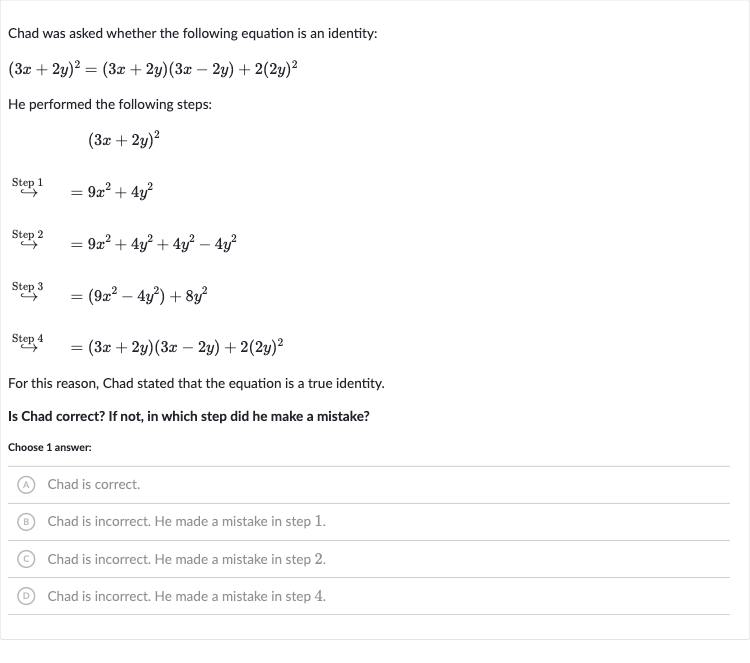AI tutor
Welcome to Bytelearn!
Let’s check out your problem:

Chad was asked whether the following equation is an identity:He performed the following steps:For this reason, Chad stated that the equation is a true identity.Is Chad correct? If not, in which step did he make a mistake?Choose answer:(A) Chad is correct.(B) Chad is incorrect. He made a mistake in step .(C) Chad is incorrect. He made a mistake in step .(D) Chad is incorrect. He made a mistake in step .
Full solution
Q. Chad was asked whether the following equation is an identity:He performed the following steps:For this reason, Chad stated that the equation is a true identity.Is Chad correct? If not, in which step did he make a mistake?Choose answer:(A) Chad is correct.(B) Chad is incorrect. He made a mistake in step .(C) Chad is incorrect. He made a mistake in step .(D) Chad is incorrect. He made a mistake in step .
- Expand using formula: Expand using the formula .Calculation: .
